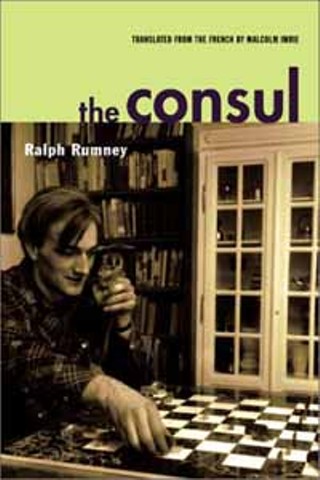Book Reviews
By Dominic Luxford, Fri., Aug. 9, 2002

The Consul
by Ralph Rumney (translated by Malcolm Imrie)City Lights, 125pp., $12.95 (paper)
Here's some trivia: Who was labeled a pervert by the Bishop of Leeds when, at the age of 15, a book about Surrealism led him to order the complete works of the Marquis de Sade? Who was one of the founding members of the intellectually radical and artistically avant-garde movement, Situationist International? To whom did Peggy Guggenheim offer $50,000 to never again see her daughter, Pegeen? And who replied, "Go fuck yourself," later marrying Pegeen? Who was the sole member of the London Psychogeographical Committee? Who beat Marcel Duchamp at chess ("He let me win")? Who claimed to know how to straighten the Leaning Tower of Pisa and, finally, who died in March?
Why, that'd be Ralph Rumney, and The Consul is a translation from the French of a series of interviews of Rumney recorded in 1998 and 1999. Rumney, whose own prolific artistic career never quite made it over the top, is best known for his involvement with the Situationist International. Like any self-respecting avant-garde movement, the SI resists any easy definition, though it was essentially "a synthesis using Rimbaud, Lautréamont, and some others like Feuerbach, Hegel, Marx, the Futurists, Dada, the Surrealists," which fought in various ways against the modern, complacent, middle-class lifestyle. His work with psychogeography, "concerned with places and the emotional states they provoke," also earned him a small degree of notoriety among artistic circles in Europe.
What makes The Consul a unique, at times truly astonishing book, however, has less to do with his discussions of the SI, psychogeography, or any other movement or concept. While these topics provide some thematic cohesion to the collection, what is most striking about The Consul is the extraordinary range of subject matter that is woven into the roughly chronological self-narrative of Rumney's life.
Throughout the interviews, Rumney considers, often with much refreshing insight, such topics as the intimate relationship between art and science, politics, philosophy, linguistics, "the system," war, and sexuality. In addition, he seems to have encountered just about every significant post-WWII left-wing intellectual and artistic figure, including Yves Klein, Marcel Duchamp, E.P. Thompson, George Bataille, John Cage, Stravinsky, Ginsberg, and Burroughs. Yet when all's said and done, the topics and relationships in The Consul seem to function most effectively insofar as they bring out a 3-D image of Rumney -- an idealistic, at times contradictory, always defiantly original man. As Bernard Kops once said of him, "With Ralph, anything was possible ... A Mephistophelean creature. He fits no category."








